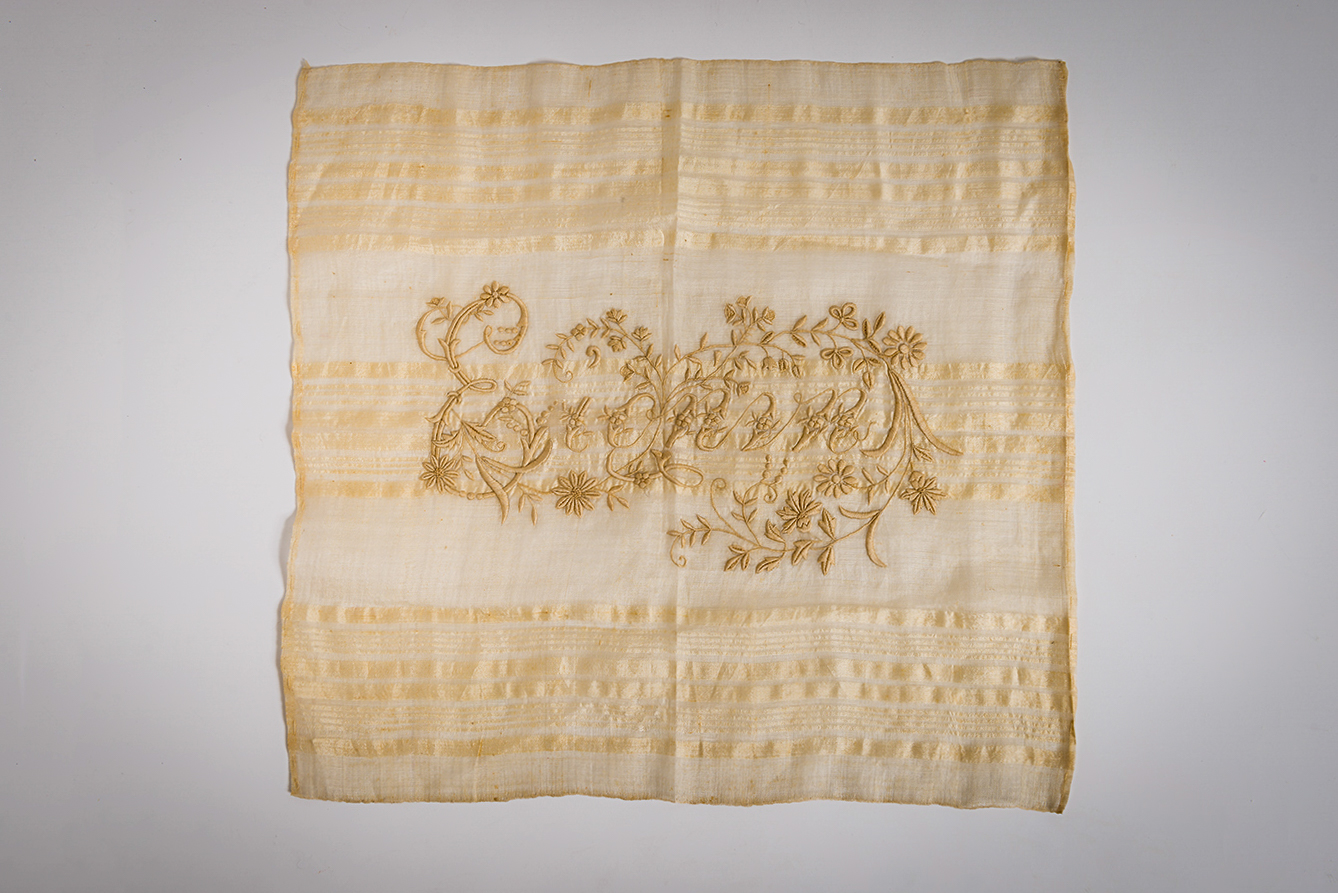Eirini Chantzara, daughter of Chrysi and Konstantinos, was born in 1890 in Adramyti. The family moved to Constantinople at the end of the 1900s. Eirini got married to Evangelos Kandylis, a sailor from Moschonisi, at the Patriarchate of Constantinople. The couple had two daughters, Nitsa (Maria-Eleni), born in 1922, and Popi (Kalliopi), born in 1924. Chrysi, Eirini and Nitsa left Constantinople in 1922 taking with them only the child’s clothes, one icon, some spoons, a small rug, and a silk dowry embroidery adorned with Eirini’s name, made by Eirini herself. The captain of the ship what would bring them to Greece did not allow passengers to carry much luggage. Eirini told him that she was only carrying a small case filled with the child’s clothes.
The women crossed over to Lesvos where they reunited with Evangelos who was returning from a sea journey. They settled in Nio Chorio where they rented a room. Later, they built a new house over the house of a Turkish bey which had been abandoned due to the population exchange agreement. During construction, the family found human skeletons in the courtyard. One of them was even wearing a gold ring, which Chrysi kept. The ring was buried with her when she later died in Mytilini. Around 1940, Kalliopi fell ill and her treatment required penicillin. She had to move to Athens, with the rest of her family following her post-war, apart from her sister, Nitsa (Anagnostou), who stayed in Lesvos and became interested in the island’s folklore. To this day, at the age of 100, Nitsa is still involved with the study of the island’s traditions. The rest of the family eventually moved to a house of their own in Palaio Faliro.
Popi married Andreas Fragkiadakis, originally from Egypt. They met at the Ministry of Finance where they both worked. Later, Andreas had a successful career as a public prosecutor and, around 1960, he was transferred to Thessaloniki, where the whole family relocated. Popi was transferred to the Tobacco Authority. Eirini raised her granddaughters teaching them Turkish songs. She lived to 102, sewing, knitting, cooking and contributing to her family until her old age.
The embroidery adorned with her name was passed on to her daughter, Popi, and then to her granddaughter and namesake, Eirini, who chose to donate it to the Folklife and Ethhnological Museum of Macedonia-Thrace in order to ensure its preservation. It reminds Eirini of her grandmother with whom she shared a tender relationship. Grandma Eirini died in her granddaughter’s arms, but before that, she got to teach her great-granddaughter a well-known Turkish song, ‘Esmerim Guzelim’. Her great-granddaughter still remembers it.
—
Image: Nikos Tsiokas


